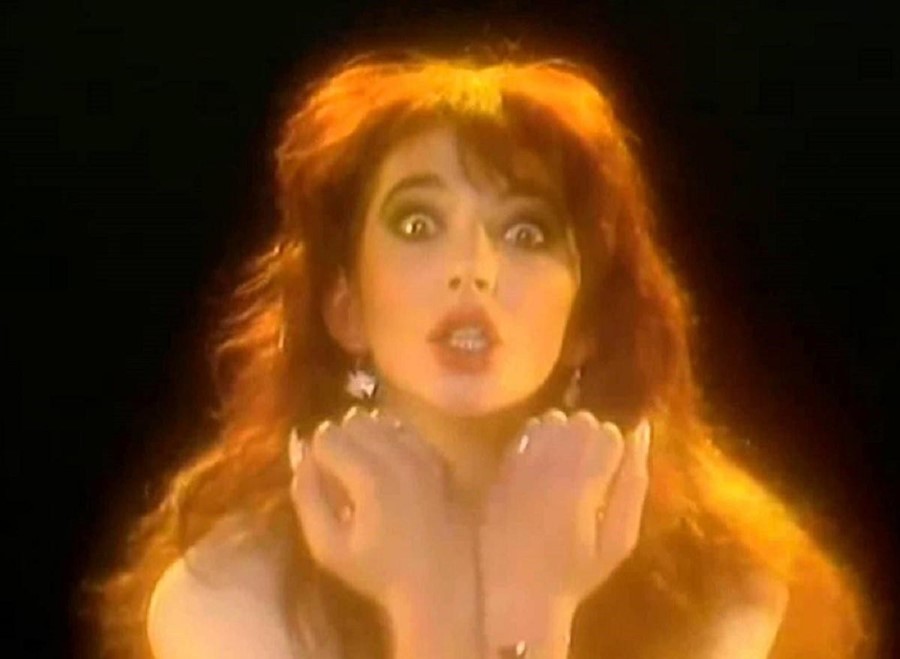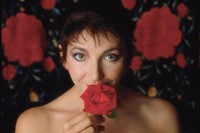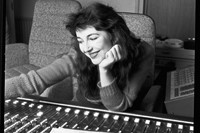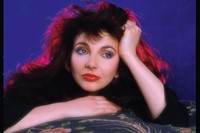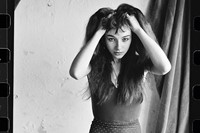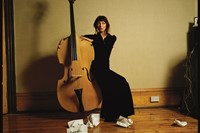As a reissue of her entire 10-album back catalogue is released, Nick Levine investigates the root of and reason for the Wuthering Heights singer’s iconic status
Kate Bush is often portrayed as otherworldly and ethereal, perhaps because we’ll always picture her twirling on those wiley, windy moors of 1978’s Wuthering Heights video. That iconic image – coupled with her infrequent musical output, a 36-year hiatus between headline live shows, and a healthy disdain for playing the celebrity game – has created a legend both romantic and reductive. She’s a “vanishing siren” with an “eccentric and intense” way of life who epitomises the “reclusive genius”. But as today’s reissue of her entire, 10-album back catalogue makes clear, Kate Bush’s incredible music remains impossible to pigeonhole in this way.
Bush cemented her reputation as a musical heavyweight with 1986’s masterful Hounds of Love album, home to alt-pop gems including Running Up That Hill and Cloudbusting. By this stage, she’d already established that her own creative autonomy was beyond negotiation. She wrote every song on her debut studio album, The Kick Inside, unaided and by her fourth, The Dreaming, she was self-producing everything, too. New music arrived when she alone felt it was ready, which meant a 12-year wait between 1993’s The Red Shoes album and 2005’s stunning comeback Aerial.
There aren’t many songs that can make me cry, but Moments of Pleasure from The Red Shoes is definitely one of them. Written as she confronted her cancer-stricken mother’s mortality, it’s partly a tribute to friends Bush had lost, and partly a celebration of life’s fleeting preciousness. “And I can hear my mother saying: ‘Every old sock meets an old shoe,’” Bush sings on the fourth verse. “Isn’t that a great saying? ‘Every old sock meets an old shoe.’” Otherworldly and ethereal this song is not; it’s a beautifully human and strikingly direct piece of songwriting that reminds us Bush is a real person with a deep well of feelings, not some kind of mythical nymph. It’s also a song loaded with almost unbearable poignancy – Bush’s mother Hannah died before The Red Shoes was released.
“Kate Bush is probably the artist to have influenced me the most: she really was the complete package and an artist so clearly in creative control from such an early age,” British singer-songwriter Little Boots tells me. “From pioneering the use of the Fairlight CMI synthesiser [on The Dreaming and Hounds of Love] to inventing live pop shows as we know them [with 1978’s The Tour of Life], she really was a true creative visionary and you can feel the thread of her personality running through every element of what she does. When I discovered her in my teens, I found this whole artist-world that I could dive into and immerse myself in. It just felt so special and necessary and I think that’s what inspires true fandom in her listeners.”
Little Boots joins a small army of musicians to have saluted Bush: everyone from Grimes to Florence Welch, and Bloc Party’s Kele Okereke to Outkast’s Big Boi has hailed her. “What caught me [about Bush] the most was, first, the production and the voice of course, but also the different meanings behind the stories she was telling,” Big Boi told Rolling Stone in 2011. New York-based Brazilian musician Yann similarly describes himself as a Bush super-fan. “If it wasn’t for Kate, I’m not even sure if I’d be a musician today,” he tells me. “The way she’s able to convey such vivid imagery through songwriting is masterful. The song and video that made me a huge fan at such a young age was Babooshka – the storytelling and visuals really mesmerised me. Growing up gay in a conservative culture as I did can be extremely isolating. Kate’s unapologetic weirdness felt like a safe space to me: she didn’t sound, look, dress, sing, or even dance like anyone else.”
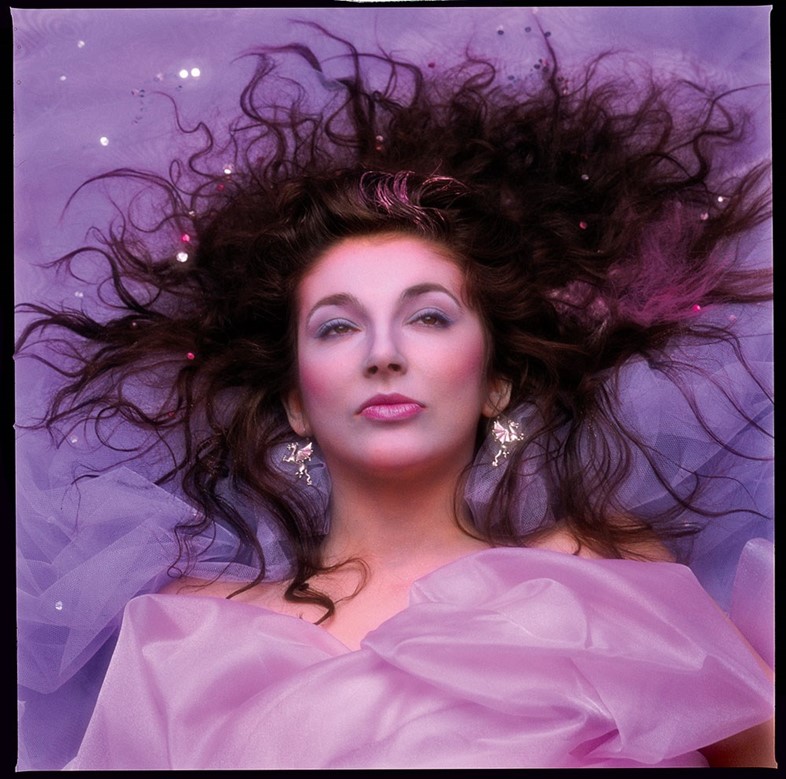
Though Bush is to our knowledge a heterosexual woman (she married guitarist Dan McIntosh in 1992, and their son Bertie was born in 1998), her otherness has always felt empowering to fans from across the gender and sexuality spectrum. On 23 November, a Kate Bush celebration night will take place at one of London’s most historic LGBTQ venues, the Royal Vauxhall Tavern. Inspired by a one-off flashmob organised by British performance artist Shambush in 2013, “The Most Wuthering Heights Day Ever” has grown to become an annual event where people in over 30 cities unite to celebrate Bush’s most famous song and video.
“There’s something liberating about spinning with abandon dressed in a flowing red gown in a field, and I think that resonates on some profound level with her audience,” Belinda Burton, who organises the Sydney event, tells me. “I’ve heard people say time and time again that they would kick aside their lounge room furniture and spin to Wuthering Heights whenever it came on. For other people, they see it as a ‘reclaiming’ of their personal power from past relationship traumas. In an increasingly grey and punitive world, you could even say it’s an act of defiance. I know it’s an overused word these days, but there’s an authenticity to Kate Bush that’s inspirational. And I think that’s her legacy, really.”
It’s a legacy destined to swell even if she never releases another album, or surprises us with a second live comeback like 2014’s triumphant Before the Dawn residency. No matter how often I listen to her music and dive into her artist-world the way Little Boots does, I’m still exhilarated by the way Hounds of Love captures how falling in love is both exciting and frightening. I still marvel that she commands our attention by singing Pi to more than 100 decimal places on Pi. And yes, I’m still completely moved by Moments of Pleasure. Four decades after she broke through, there’s still no one quite like Kate Bush.
